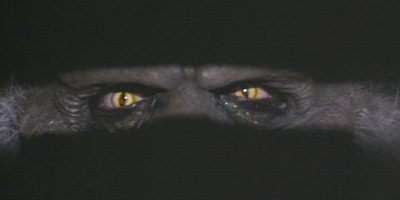
On Tuesday, Sept 15th, Miramax and Buena Vista will be releasing a welcome, if oddly grouped, selection of martial arts films, all making their Blu-ray disc debut. Called the “Ultimate Force of Four” set, which actually makes it sound like a poorly translated Japanese cartoon from the 80s, the set features four popular films starring Hong Kong sensations Jackie Chan, Donnie Yen, Jet Li, and even Takeshi Kitano for the sake of cultural diversity. Although some of the films share similar elements, other than being elaborately costumed period shows they have little in common save having been snatched up for American distribution by Miramax Pictures.
Takeshi Kitano has worn many hats in the Japanese entertainment industry over the last few decades; from wacky game show personality, half of a stand-up comedy act, master of ceremonies, not to mention writing, producing and directing a series of films that run the gamut from lowbrow humor to hyper-violent and deadly serious police/yakuza dramas. Like fellow countryman Takashi Miike, some of Kitano’s films have managed to break through the seemingly insurmountable cultural barrier that sadly keeps most Americans ignorant to the wealth of Japanese films that exist outside the limited realms of Akira Kurosawa and Godzilla. Kitano was first seen on this side of the Pacific in a major supporting role opposite David Bowie and Tom Conti in Nagisa Oshima’s 1983 POW camp drama Merry Christmas, Mr. Lawrence, but Kitano’s fortunes were assured while filming Violent Cop for director Kinji Fukasaku (who would go on to direct him in arguably his most widely seen film, Battle Royale.) The aging master fell ill during filming and Kitano took over the directing chores, re-fitting the script and fashioning a tough guy screen persona similar to that of Ken Takakura, whose steely gaze often said more than whole pages of dialog. This contrasted sharply with the heavily comedic work that he had come to be known for on shows like the utterly mad Takeshi’s Castle (immortalized stateside as MXC on Spike TV.) Kitano fine-tuned this gangster persona several years later, creating one of his finest films, Sonatine, a festival favorite that won the actor a considerable international following.
Kitano had some initial trepidation in taking on the role of the blind swordsman (and masseur!) as it was so heavily identified in Japan with Shintaro Katsu, who owned the role thanks to a 26 films and a TV series that stretched from 1962 to 1989. But Kitano, who directed and starred, as usual, under the Beat Takeshi moniker, changed the more traditional good against evil tone of the early films, mostly by giving the villain of the piece, a Ronin bodyguard (Tadanobu Asano) a tragic backstory that allows for empathy. The plot of the film, which finds Zatoichi working with a group of poor farmers who are caught between two warring groups of Yakuza, is as old as the hills, with roots back to Italian westerns of the 60s, which were, in turn, inspired by Akira Kurosawa’s jidaigeki films of the 50s, Yojimbo and The Seven Samurai. But Kitano adds a few new twists, like buckets of stylistically-rendered CGI blood (Kitano seems to be the only filmmaker that knows how to apply this technique properly) and a large-scale celebratory tap dance sequence that will strike many as unusual to say the least, but as a director, Kitano isn’t known for emotional pandering and the scene makes for a joyous and touching way to cap the proceedings.
If Zatoichi was given a US theatrical release, we missed it, but Miramax has obtained the US home video rights, which usually means a regimen of cutting and dubbing, but the news isn’t all dire. We do get the uncut feature with an original language audio track, but (as with the other 3 films from the box set) only the English dub track is accorded a lossless DTS audio track while the original Japanese audio rates only a DD 5.1 mix. the transfer, however, is a mixed bag; initially the picture appears bright and clear, but closer inspection reveals some distractingly noticeable edge enhancement, as if the sharpness was turned up too high, which gives the illusion of fine detail when the actual effect is just the opposite. The brightness also appears to have been artificially boosted, giving the film the over-lit feel of television product. It’s by no means unwatchable, but we also feel that a little more care should have been accorded to Zatoichi – a box office and critical smash in Japan that could have made Miramax some major coin in the US had it been handled better. An excellent 40min making-of docu is included, along with a collection of short, individual interviews.




